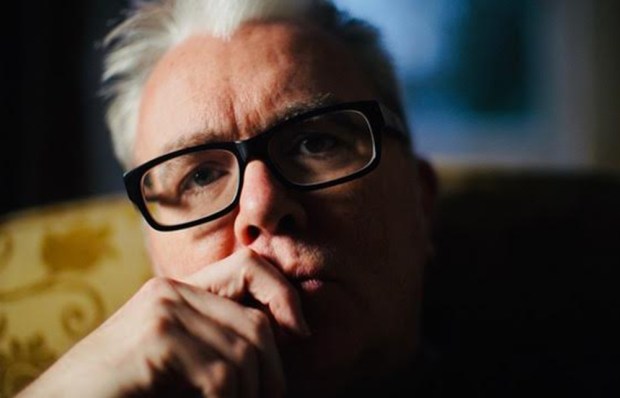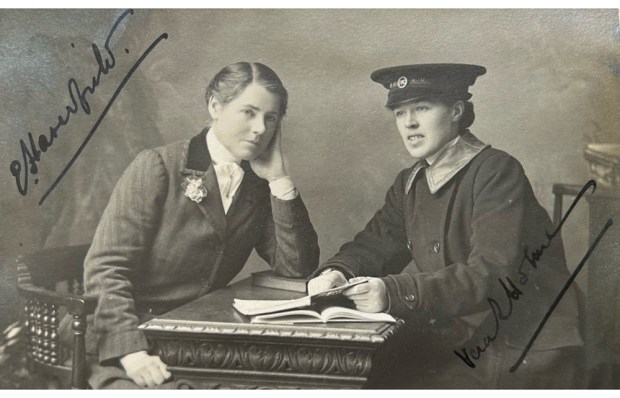Is there a woke case to be made for freedom of expression? Jacob Mchangama certainly seems to think so. This 500-page door-stopper, which combines a history of free speech with a persuasive case for its defence, is aimed squarely at snowflakes and social justice warriors. Mchangama deals patiently and methodically with all the objections they might make to ‘the first freedom’ and then tries to convince them it’s in their interests to defend it.
Take the assumption that untrammelled free speech perpetuates current inequalities, favouring the privileged and penalising the disadvantaged. That view often underpins the efforts of student activists to cancel controversial speakers, believing as they do that anyone who challenges fashionable orthodoxies about race, sex and gender will make minority students feel ‘unsafe’. And we’re not just talking about Jordan Peterson and Douglas Murray. In recent years, the ranks of the no-platformed have swelled to include Germaine Greer, Peter Tatchell and Julie Bindel.
The first two-thirds of this book, which traces the concept of free speech from its beginnings in ancient Athens to its eventual triumph as ‘the great bulwark of liberty’, aims to demolish this argument. Mchangama points out that free speech has always been a thorn in the side of tyrants and dictators, who, on attaining power, immediately start arresting their adversaries and closing down opposition newspapers.
With good reason, too. Far from being the glue that preserves existing power structures, free speech nearly always corrodes them. Had it not been for this volatile compound, Christianity wouldn’t have spread throughout the Roman empire, Copernicus wouldn’t have upended geocentrism, Luther wouldn’t have nailed his 95 theses to the door of All Saints Church in Wittenberg and we wouldn’t have had the Reformation, the Glorious Revolution, the American Revolution, the French Revolution or the Russian Revolution. As for the notion that it is the servant of colonialism and white supremacy, that would have been news to Gandhi, Nelson Mandela and Martin Luther King, all of whom were passionate advocates of freedom of expression.
Mchangama is particularly good on this last point, stressing the role that a string of First Amendment victories by the American Civil Liberties Union played in enabling activists to organise, march and protest: ‘The civil rights movement and its allies had to reshape public opinion, making the grim reality of racism and segregation impossible for white Americans to ignore. Free speech was thus crucial to the fight for equality.’ The same point was made by the Congressman John Lewis, one of the organisers of the 1963 March on Washington. ‘Without freedom of speech and the right to dissent, the civil rights movement would have been a bird without wings,’ he said.
Another calumny that Mchangama dispatches without mercy is the notion that no-platforming is a surefire way to stamp out bigotry. The Weimar Republic, he reminds us, passed numerous laws to make the dissemination of Nazi propaganda illegal. The Nazi party newspaper Völkischer Beobachter was temporarily suspended for anti-Semitic excesses on numerous occasions in the early 1920s; Hitler was prohibited from speaking publicly in most German states between 1925 and 1927; Goebbels’s paper, Der Angriff, was suppressed 13 times, enabling Goebbels to boast it was Germany’s ‘most frequently banned daily’; and Julius Streicher, as editor of Der Stürmer, was sentenced to two months in prison in 1929. Far from preventing the rise of Hitler, these attempts to silence him and his henchmen only served to transform them into martyrs. It would have been better, Mchangama argues, to let the Nazis set out their toxic arguments in the public square where they could have been rebutted with evidence and reason.
The same argument applies to the current campaign against ‘hate speech’. Today’s self-styled ‘anti-fascists’ invoke this concept to justify silencing a vast range of dissenting views, from Jacob Rees-Mogg to J.K. Rowling. Mchangama traces the origins of the phrase to Stalin’s lackeys in the UN in the 1940s. When the Universal Declaration of Human Rights (UDHR) was being drafted, the Soviets pushed for a ‘hate speech’ exception to the free speech clause, whereby states weren’t merely permitted to prohibit hate speech but were required to do so. The Soviet delegation failed when it became clear that, according to their definition, ‘hate speech’ would include advocating for western capitalism and liberal democracy. The final version of the UDHR included a strong endorsement of free speech with no qualifications and the only states to abstain were the Soviet Union and its Warsaw Pact satellites, as well as Saudi Arabia and apartheid South Africa. I wonder how today’s progressive censors will feel about these strange bedfellows, on the off chance they’ll read this book.
They won’t, of course – and even if they do they may not change their minds. If there’s a flaw in this book it is Mchangama’s assumption that today’s enemies of freedom of expression are acting in good faith, and will happily embrace the principle once their misguidedness has been pointed out. But he probably knows that is naive and is only pretending to take their objections seriously to occupy the moral high ground. His real aim, I suspect, is to equip the defenders of free speech with arguments to trounce their opponents, and in that he succeeds magnificently.
Got something to add? Join the discussion and comment below.
Get 10 issues for just $10
Subscribe to The Spectator Australia today for the next 10 magazine issues, plus full online access, for just $10.
You might disagree with half of it, but you’ll enjoy reading all of it. Try your first month for free, then just $2 a week for the remainder of your first year.















Comments
Don't miss out
Join the conversation with other Spectator Australia readers. Subscribe to leave a comment.
SUBSCRIBEAlready a subscriber? Log in